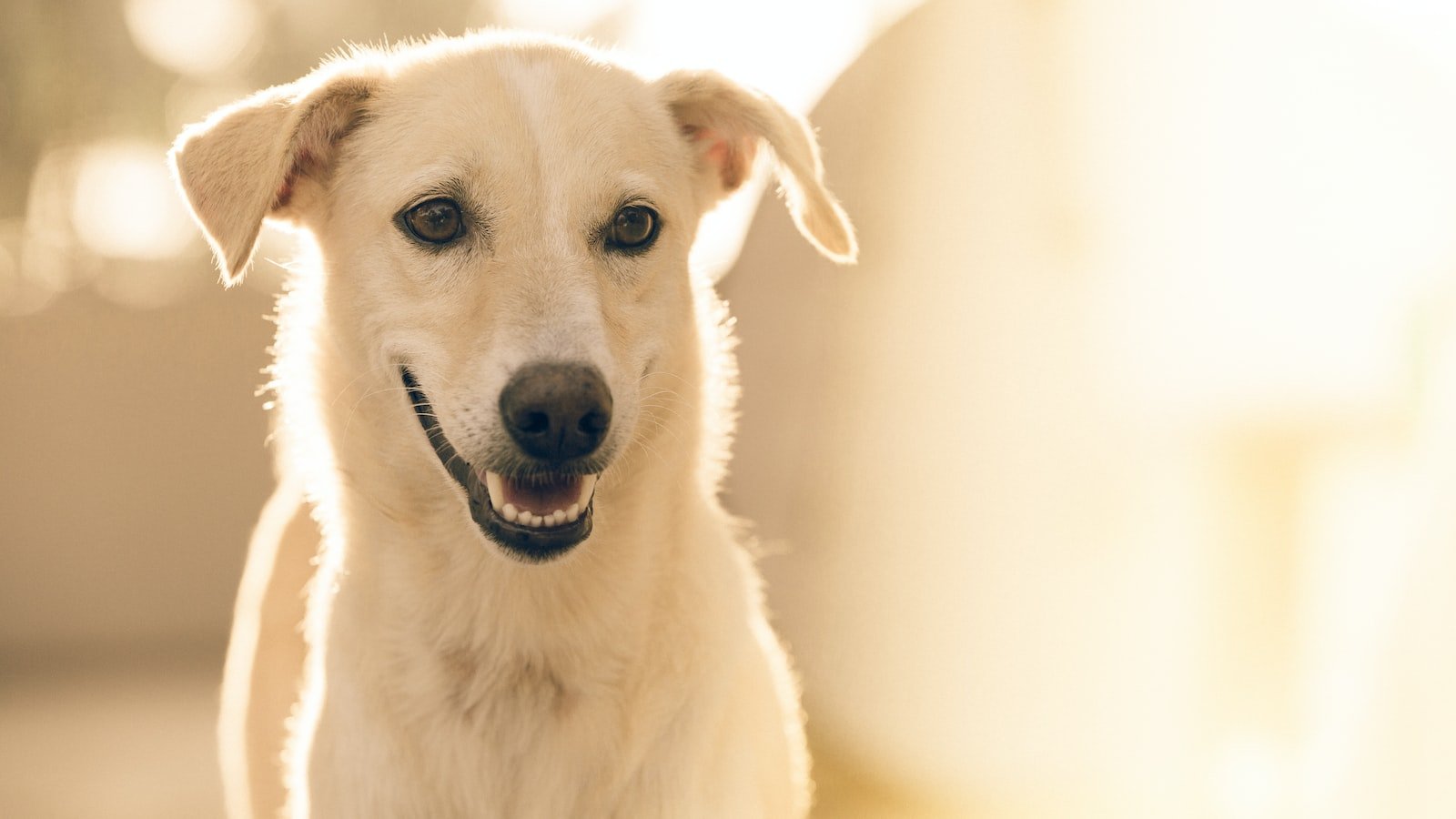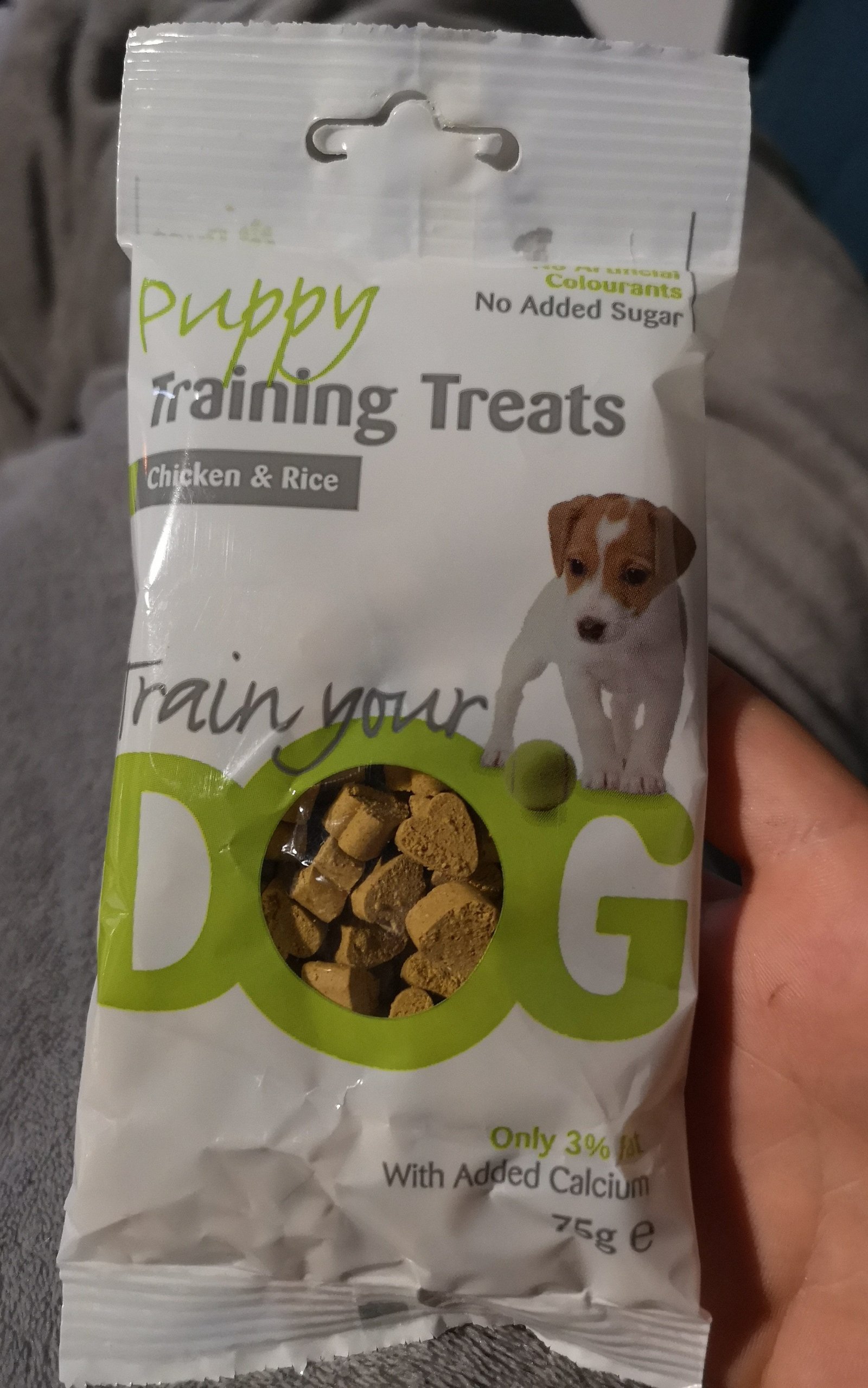Getting a large breed dog can be an absolute bundle of joy, but let’s face it: they can also come with their fair share of challenges. From their rambunctious energy to their insatiable appetite, training these lovable giants requires time, dedication, and a few valuable tricks up your sleeve. Fortunately, we’re here to unveil one of the most overlooked secrets to successful training – dog food. That’s right, the key lies in nourishing your large breed pup with the right training foods. So, grab your treat bag and unleash the potential of your furry friend as we explore the best dog training foods specifically tailored for those extra big and loveable furballs.
Table of Contents
- Choosing the Right Diet for Your Large Breed Dog
- Understanding the Nutritional Needs of Large Breeds
- Key Ingredients to Look for in Dog Training Foods
- Recommended Dog Training Foods for Large Breeds
- Making the Transition to a New Diet for Optimal Training Results
- Q&A
- Concluding Remarks

Choosing the Right Diet for Your Large Breed Dog
Eating Right for Your Big Buddy
When it comes to your beloved large breed dog, their diet plays a vital role in their overall health and well-being. With their unique nutritional requirements, it’s crucial to choose the right diet that caters to their specific needs. Here are a few important factors to consider when selecting the perfect meals for your gentle giant:
- Protein Powerhouse: As your large breed dog requires more muscle mass to support their size, it’s important to prioritize high-quality protein sources in their diet. Look for diets that feature real meat as the primary ingredient, such as chicken, lamb, or beef. Opt for options that have a minimum protein content of 25% to ensure they receive the necessary building blocks for their muscles.
- Joint Support: One challenge that many large breed dogs face is the strain on their joints due to their size. To help protect their joints and maintain mobility, consider a diet that contains glucosamine and chondroitin. These supplements are known to promote healthy joints and can help prevent issues such as arthritis.
- Balance is Key: While proteins are important, it’s crucial not to neglect other essential nutrients. Look for diets that are formulated to provide a well-balanced mix of protein, fats, carbohydrates, vitamins, and minerals. A proper balance will support your dog’s energy levels, immune system, and overall health.
Remember, not all large breed dogs are the same, so it’s always a good idea to consult with your veterinarian before making any major changes to your dog’s diet. Together, you can find the perfect diet plan that will keep your furry friend happy and healthy for years to come!

Understanding the Nutritional Needs of Large Breeds
Proper nutrition plays a crucial role in maintaining the health and well-being of large breeds. Understanding their unique nutritional needs is essential for keeping these majestic creatures fit and thriving. Here are some key factors to consider when it comes to feeding your large breed friend:
1. High-Quality Protein
Quality over quantity! Large breeds need a higher amount of protein in their diet to support their growth and development. When selecting dog food, look for options that list real meat as the first ingredient. Protein-rich sources such as chicken, beef, or fish aid in maintaining strong muscles and supporting overall body functions. Incorporating raw or home-cooked meals with guidance from a veterinarian can also be a healthy addition.
2. Controlled Caloric Intake
Don’t let their size fool you! Large breeds tend to have slower metabolic rates compared to smaller dogs, making them more prone to obesity. Controlling their caloric intake is crucial to prevent weight gain and reduce strain on their joints and organs. Opt for a dog food formulated specifically for large breeds to ensure the appropriate balance of nutrients and calories. It’s also important to monitor portion sizes and avoid overfeeding to maintain a healthy weight.
3. Joint Care and Supplements
Take care of those mighty joints! Many large breeds are predisposed to joint issues like hip dysplasia or arthritis. Providing them with proper nutrition and supplements can help alleviate discomfort and keep their joints strong. Look for dog food containing glucosamine and chondroitin, which promote joint health. Additionally, consult with your veterinarian to determine if any specific supplements, such as fish oil for omega-3 fatty acids, would be beneficial for your furry companion.
By understanding and meeting the nutritional needs of large breeds, you can help ensure a long, happy, and healthy life for your four-legged friend. Remember, consulting with your veterinarian is always a wise choice to tailor a diet plan that suits your dog’s individual needs.

Key Ingredients to Look for in Dog Training Foods
Choosing the right dog training food is crucial in ensuring the success of your furry friend’s training program. To help you make an informed decision, here are some key ingredients to look for:
- High-quality proteins: Look for dog training foods that contain premium sources of protein, such as chicken, beef, or fish. Proteins are essential for building and repairing muscles, aiding in digestion, and boosting overall energy levels.
- Healthy fats: Including sources of healthy fats, such as salmon oil or flaxseed, in your dog’s training food can improve their skin and coat health. Omega-3 fatty acids found in these fats are not only beneficial for their physical appearance but also for cognitive function.
- Complex carbohydrates: Opt for dog training foods that incorporate whole grains like brown rice or quinoa. These carbohydrates provide sustained energy which helps your dog stay focused during training sessions. Avoid foods with excessive amounts of fillers and artificial additives.
- Antioxidants and vitamins: Ensure that your dog’s training food contains a good blend of antioxidants and essential vitamins, such as vitamins E and C. These nutrients help support their immune system and overall well-being.
Recommended Dog Training Foods for Large Breeds
When it comes to training your large breed dog, nutrition plays a vital role in ensuring they have the energy and stamina for their exercises. Here are some highly recommended dog training foods specifically formulated for large breeds:
- Protein-packed kibble: Look for dog food that is rich in high-quality proteins, such as chicken, turkey, or fish. Protein helps in developing strong muscles and supporting your dog’s overall growth.
- Grain-free options: If your dog has a sensitivity to grains or you prefer a grain-free diet, opt for dog food made with alternative grains like quinoa, sweet potato, or lentils. These provide essential carbohydrates and fiber for sustained energy.
- Joint support formulas: Large breed dogs are prone to joint issues, so consider dog food that contains glucosamine and chondroitin. These ingredients promote healthy joints and can help reduce the risk of future problems.
- Omega-3 fatty acids: Look for dog food that contains a good amount of omega-3 fatty acids, usually derived from fish oil. These healthy fats support brain function and help maintain a shiny coat and healthy skin.
Always consult with your veterinarian to ensure you choose the right dog food for your large breed. Remember, providing proper nutrition is key to optimizing the training potential and overall well-being of your furry friend!
Making the Transition to a New Diet for Optimal Training Results
Embarking on a new diet can be an exciting and transformative journey for athletes looking to maximize their training results. Fueling your body with the right nutrients is crucial to achieving peak performance and pushing past your limits. Here are some key tips and considerations to help you smoothly transition to a new diet that supports your training goals:
1. Start with Mindful Planning
Before making any dietary changes, take the time to research and plan your new approach. Identify your specific training needs and consult with a nutritionist or dietitian to create a personalized meal plan. Pay attention to portion sizes, macronutrient ratios, and food preferences to ensure your new diet is both effective and enjoyable.
2. Gradual Implementation
Rather than making abrupt changes, aim for a gradual transition. Start by incorporating small adjustments into your current eating habits. For example, add more fruits and vegetables to your meals or replace processed snacks with healthier alternatives like nuts or yogurt. By easing into your new diet, you give your body time to adapt and minimize any potential digestive discomfort.
3. Stay Hydrated
Hydration is often overlooked but is a vital aspect of any diet, especially for athletic performance. Aim to drink plenty of water throughout the day to support your body’s functions and aid in recovery. Consider monitoring your hydration levels by tracking your urine color—light yellow indicates proper hydration.
4. Experiment and Listen to Your Body
Every individual is unique, so it’s important to experiment and find what works best for your body and training routine. Pay attention to how different foods make you feel, both physically and mentally. Keep a food journal or use a nutrition tracking app to monitor your progress and make adjustments accordingly.
Remember, a new diet is not just a short-term fix but a long-term commitment to your overall health and success as an athlete. With patience, consistency, and a willingness to adapt, you can make a seamless transition and fuel your body for optimal training results.
Q&A
What types of food are best for training large breed dogs?
High-quality, protein-rich foods such as chicken, beef, and turkey are excellent choices for training large breed dogs. Additionally, foods that are low in fillers and artificial ingredients are recommended to provide optimal nutrition during training sessions.
Are there specific nutrients that large breed dogs require for training?
Yes, large breed dogs often benefit from foods that contain glucosamine and chondroitin for joint health, as their size can put additional strain on their joints. Omega-3 fatty acids are also beneficial for their overall well-being and cognitive function.
Should I consider the size and texture of the food for training purposes?
Absolutely! For effective training, it is important to choose treats that are small enough for your dog to consume quickly without losing focus. Soft and chewy treats are often preferred as they are easily breakable and manageable during training sessions.
Are there any food ingredients that should be avoided for large breed dog training?
It’s best to avoid foods that contain excessive amounts of fillers like corn, wheat, and soy, which can be harder for large breed dogs to digest and provide little nutritional value. Additionally, treats high in fat or sugar should be limited to prevent weight gain.
Can I use regular dog food as training treats for my large breed dog?
Certainly! In fact, using your dog’s regular kibble as training treats can be a great way to maintain consistency in their diet while providing rewards during training. Just make sure to account for the portion size and adjust their regular meals accordingly.
Are there any specific training treats available for large breed dogs?
Yes, there are several training treats specially formulated for large breed dogs. These treats are often larger in size, making them more satisfying for your dog. Look for brands that prioritize natural ingredients and meet your dog’s specific dietary needs.
Is it necessary to consult a veterinarian before choosing training food for my large breed dog?
While it is not mandatory, consulting with a veterinarian can be beneficial to ensure you are making the best choices for your dog’s specific needs. They can provide personalized recommendations based on factors such as age, weight, and any underlying health conditions.
Concluding Remarks
As we wrap up our exploration of the best dog training foods for large breeds, we hope you’ve found our guide both informative and inspiring. Remember, providing your large furry companion with the right nutrition is essential for their overall well-being and training success.
From the tender moments spent bonding over mealtime to the leaps and bounds they make in their training sessions, choosing the right food can make a world of difference in your large dog’s journey towards obedience and happiness.
Whether you opt for protein-packed options that fuel their energetic nature or the nutrient-rich formulas that promote joint health, always remember to consult with your veterinarian to determine the best fit for your four-legged friend.
Feeding a large dog is not just a responsibility but an opportunity to enhance their quality of life. By investing in high-quality training foods, you will witness your beloved companion grow stronger, sharper, and more attentive with each passing day.
So, embark on this culinary adventure with your loyal companion and watch the magic unfold. Cherish the moments of shared milestones, the wagging tails, and the joyous barks that signify genuine achievements. Together, you and your large dog can conquer any challenge that comes your way.
Remember, behind every well-behaved and responsive dog, there is a powerful bond forged through patience, love, and the right nutrition. So, let’s raise a bowl to our large furry friends, and here’s to bright futures filled with nutritious meals and incredible adventures that await.
As an affiliate, my content may feature links to products I personally use and recommend. By taking action, like subscribing or making a purchase, you’ll be supporting my work and fueling my taco cravings at the same time. Win-win, right?
Want to read more? Check out our Affiliate Disclosure page.